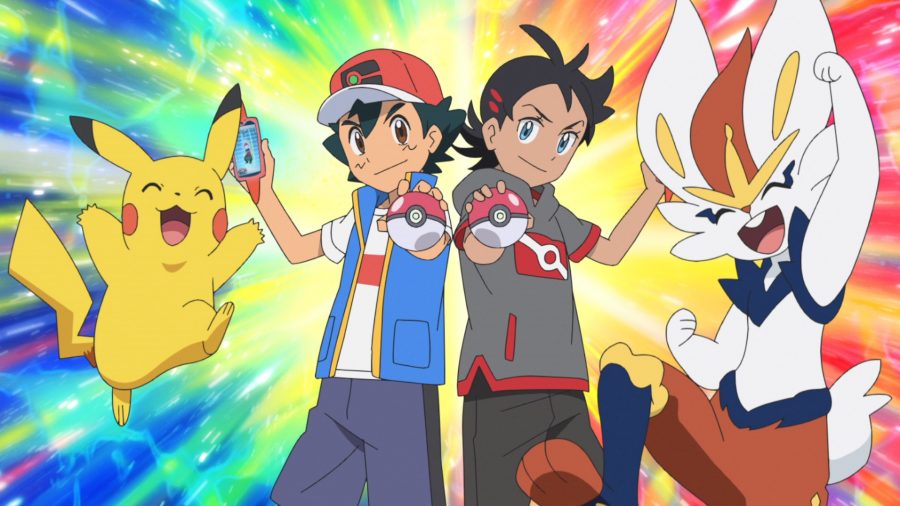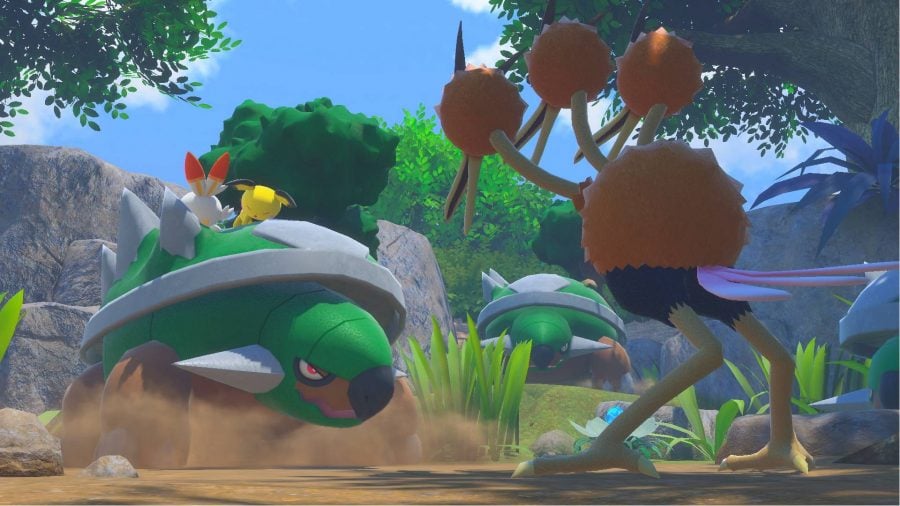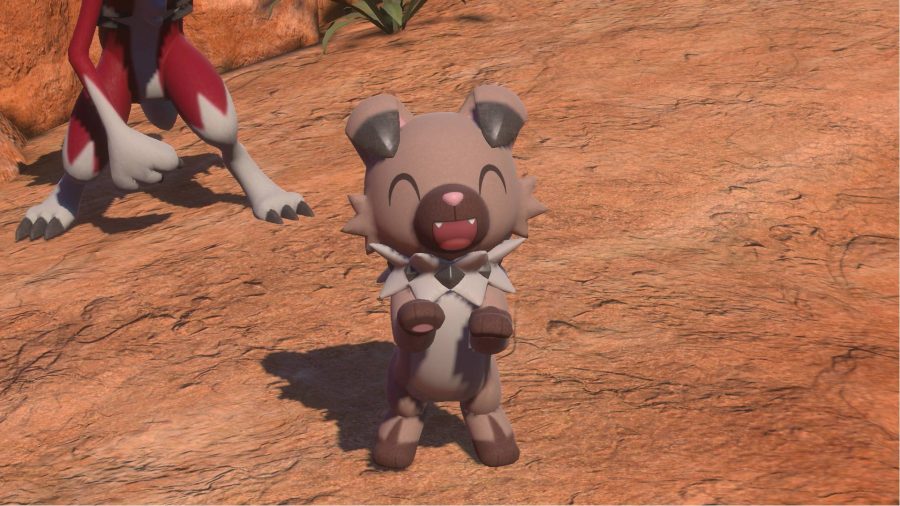Building a Pokémon TCG deck is your very first step towards becoming a combo-creating, card-slinging Pokémon master. Whether you’re picking up your first booster packs, or are getting ready to take the dive after years of collecting, there’s a lot to learn before you can start battling.
Fortunately, that learning doesn’t have to be a slog. Like the colourful pocket monsters you’ll be throwing down on the tabletop, the Pokémon TCG is one of the more friendly trading card games out there. With just a few key points under your belt, you’ll be able to whip up a competitive deck in no time at all. Accessible and streamlined, learning the basics will improve your experience of the game ten-fold.
This guide will cover everything that you need to know about building a deck in the Pokémon Trading Card Game. We’ll walk you through how many cards you can include in a deck, how to split that number between the various card types, and list some staple Trainers that you should always consider including. By the end, you’ll be prepared for any Gym Leader that comes your way.
If you’re more interested in learning the basics of the game, check out our guide on how to play the Pokémon TCG for all the fundamentals.
How To Build A Pokémon TCG Deck
When you start, you need to choose a ‘type’ for your deck. There are lots to choose from, and not every type from the videogames is represented in the Pokémon TCG. For example, Bug-type Pokémon tend to fall under the Grass-type in the TCG, while Fairy Pokémon are now classed as Psychic.
Prized pulls: Check out these rare Pokémon cards
If you have a favourite type or Pokémon, this should be an easy pick. Otherwise, choose a Pokémon that has a few evolutions, so that you can get familiar with evolution trees in the TCG. A starter Pokémon, such as Squirtle or Fennekin, might be useful for this.
How Many Cards Can You Have In A Pokémon TCG Deck?
All Pokémon TCG decks must have 60 cards. No more, and no less. There are also limits on how many of each card you can include. You can only have a maximum of four of a specific card in your deck.
For example, you can only have four Fennekin cards. This is the general rule, but there are certain exemptions, such as Prism Star, which can only be included once per deck.
Once you have around 15 Pokémon in your deck, it’s time to start thinking about Trainer and Energy cards. Use Normal type Pokémon to fill space if you need some more attackers.
Pokémon Master: These are the best Pokémon cards
Trainer cards are the core of any Pokémon deck. They allow you to change the conditions of the game so that you can gain an advantage, or at least get yourself into a better tactical position.
When choosing Trainer cards, think about how you can set yourself up for future turns. If your deck focuses on Fennekin’s final evolution, Delphox, then you’ll want to move that card into an active position as soon as possible. Trainer cards will help you achieve this.
You want at least twenty Trainer cards in your deck, but we’d generally recommend having more. After all, they act like little cheats for you to unveil when you need them most.
Trainer Card Staples In the Pokémon TCG
There are certain Trainer cards that should always be used in any deck. These are known as ‘staples’, and they are often reprinted in every new set. These include:
- Professor’s Research
- Boss’s Orders (previously Lysandre)
- Marnie
- Skyla
- Leon
- Cheryl
- Quick Ball
- Ordinary Rod
- Switch
These all have varying effects, but they mostly focus on removing unnecessary cards from your hand, and replacing them with new ones that might prove more useful.
Anti-cheat: How to identify fake Pokémon card
This is pivotal in setting up at the start of a game. You can quickly get rid of cards that you won’t need in early turns , and find more helpful cards to replace them, whether they be more Trainers, certain Pokémon, or Energy.
What Are Energy Cards In Pokémon TCG?
Energy cards are essential in any Pokémon TCG deck. They allow you to use your Pokémon’s attacks, deal damage to opponents, and ultimately claim prize cards to win.
Most Pokémon cards will have attacks, which carry a specificed energy cost. Count the total energy costs of your cards – in Delphox’s case, you need fire energy – and add the necessary energy to your deck.
Since you lose energy when your Pokémon are knocked out, make sure to include a few extra energy cards, so that you can always find them in your deck.
Winning picks: These are the most powerful Pokémon
If you have used four of every Trainer card listed above , you will have around ten slots left for energy, which is an ideal amount.
Of course, this is just one example of how to build your deck. There are lots of possibilities, but you should always make sure that the cards in your deck complement each other.
With the cards listed above, you’ll be able to use Professor’s Research and Ordinary Rod to find energy cards so that you can power up Delphox quickly throughout a match. If you can spot these synergies with other card combos, you just might find the building blocks for a new deck.




